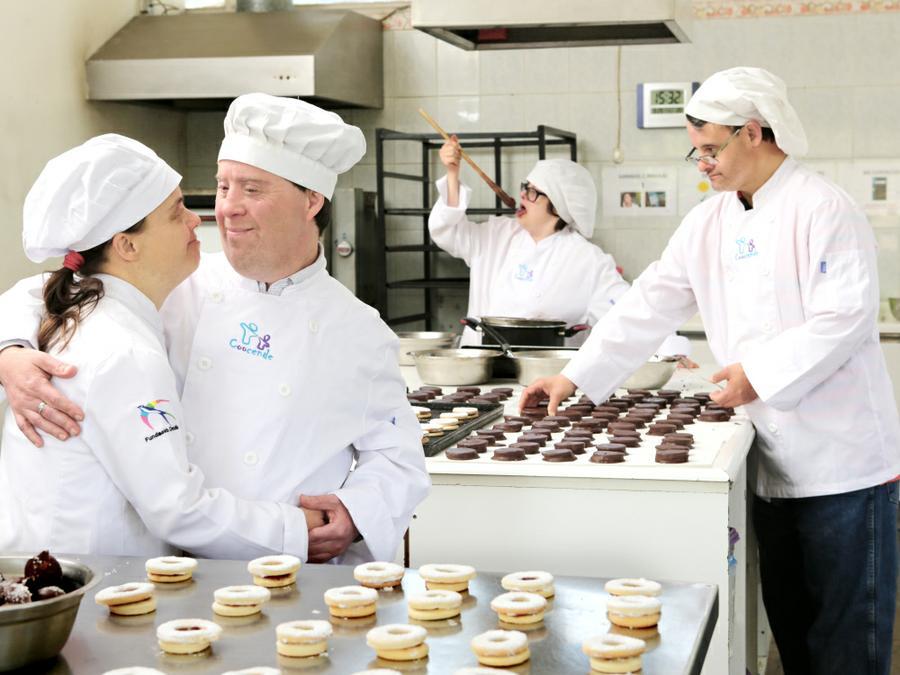Maite Alberdi’s _The Grown-Ups_ is a humanizing experience, drawing attention to the realities people who have Down syndrome and their community. Alberdi gives the characters the reins in provoking thought and emotion from the audience. Lacking a narrator and heavily scripted dialogue, the characters introduced provide the life and voice of the story.
Watching _The Grown-Ups_ is like watching a longer version of an episode of The Office, following the lives of six middle-aged adults with Down syndrome in their work environment that is not an office, but a catering school. The sharp cuts and face-to-camera scenes reflect that of a documentary but entertain in the way a scripted film would. Even scenes that might have been prompted or scripted still feel completely real and honest, and that is the strongest aspect of the film: It is honest.
Although six characters are featured, only three are closely followed in their seemingly mundane lives.
Ricardo’s story places a substantial focus on employing those with learning disabilities and the miniscule pay that comes with government employment. Working two jobs and looking for a third, Ricardo is looking to financially support himself and a potential family but does not have the means to do so. Making a mere $15 a week from his jobs at the catering school and nursing home, there seems to be no hope for the grown adult now in his 40s. Without making a bold call to action, Alberdi implicitly draws attention to the need for reform in employing those with Down syndrome. Hearing Ricardo voice his desire for the “normal” life his parents led is enough to create emotion in the audience and remind them of the injustices faced by those with learning disabilities.
Anita and her love interest Andrés, on the other hand, face the same financial challenges as Ricardo, but also face the obstacles regarding the legalities of marriage between people with Down syndrome.
The film takes place in Chile, where those with learning disabilities are unable to marry if they are not deemed at least as mature as an 18-year-old, according to the film. The two are not only denied, but laughed at by all they propose their marriage to. On top of this, Anita is bound by the rules of her mother’s home and doesn’t have many freedoms held by other 45-year-olds.
Andrés is set back financially when his sisters stop paying for his schooling, and he is no longer able to see Anita.
After a small argument and plenty of tears, Anita and Andrés put their relationship to rest in a way every break-up should: by throwing a party. Cake is shared, toasts are made, and despite the tears, smiles are worn all around. If only every break-up received that same kind of closure.
The most heartwarming scenes throughout the film are put on by Anita and Andrés, despite their troubling situation. Alberdi allows the audience to experience the intimate moments between the two, whether Anita is popping out of a cake and dancing for Andrés, or if they are simply lying in the classroom bed together. No room is left to question the validity of their relationship.
By focusing on the lives of the featured characters, it is clear that those with Down syndrome are no less capable of experiencing the same emotions felt by everyone else and deserve the same kinds of opportunities. Throughout the film, all of the characters face challenges that only further solidify their right to equal opportunities.
The characters fear what we fear and feel what we feel. The most important thing Alberdi could have done with this film is humanize the individual characters, and she excels in doing so. The same mantra repeated by the characters in their therapy session is what the film leaves the audience to dwell on the heaviest when considering the special needs community: “I am a conscious adult.”
**MOVE gives _The Grown-Ups_ 4 out of 5 stars.**








